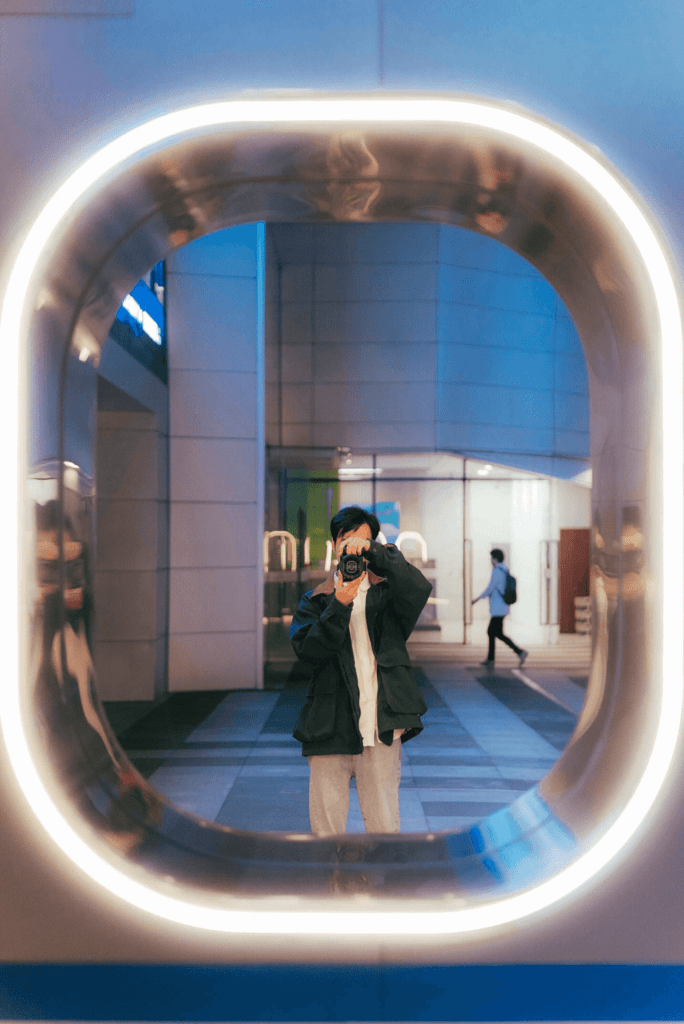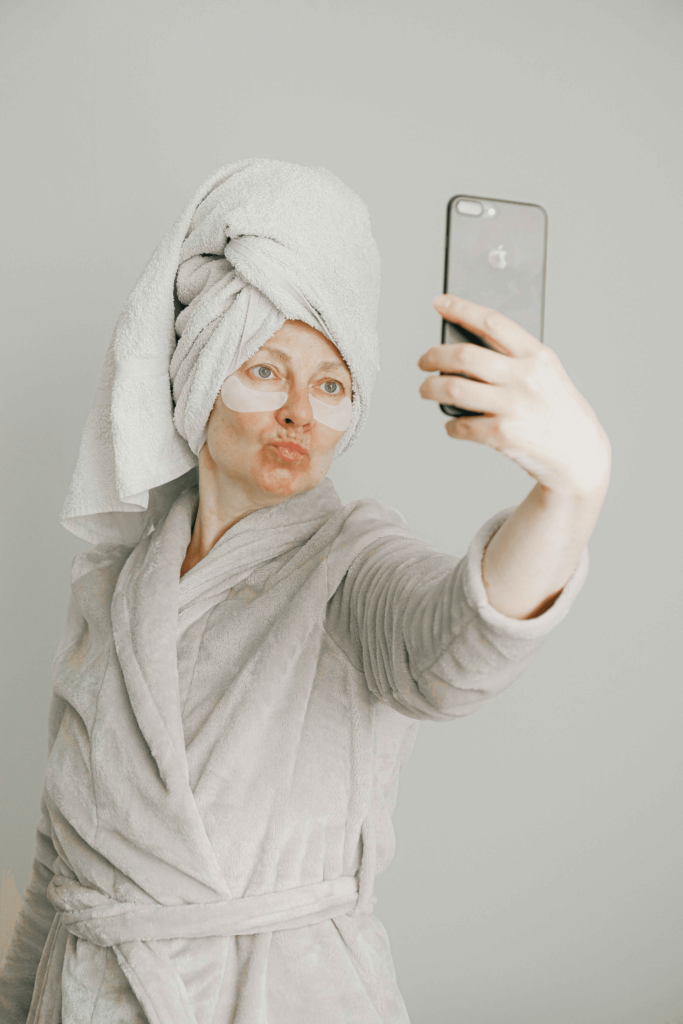Last updated on August 26th, 2024 at 03:48 pm
- The Nature Of Fame In Modern Society
- Key statistics and research findings:
- Prevalence of fame-seeking:
- Fame as a life goal:
- Reality TV and fame perception:
- Social media and micro-celebrity:
- Narcissistic Traits In Celebrities And Fame-seekers
- Key findings:
- Narcissism in celebrities:
- Fame-seeking and narcissism:
- Social media influencers and narcissism:
- Narcissism and self-promotion:
- The Role Of Fandom In Reinforcing Narcissistic Culture
- Key aspects of this dynamic:
- Fan validation and narcissistic supply:
- Parasocial relationships:
- Fan behavior and celebrity narcissism:
- Social media interaction:
- The Psychology Behind Celebrity Obsession
- Parasocial Relationships And Emotional Attachment
- Key research findings:
- Prevalence of parasocial relationships:
- Emotional investment:
- Parasocial relationships and well-being:
- Social media and parasocial interaction:
- Parasocial relationships and narcissism:
- The Mechanisms Of Parasocial Relationships:
- Illusion of intimacy:
- Emotional resonance:
- Attachment patterns:
- Identity formation:
- Projection Of Ideals Onto Public Figures
- Key aspects of ideal projection:
- Idealization and self-enhancement:
- Vicarious achievement:
- Escapism and fantasy:
- Value alignment and reinforcement:
- Physical appearance idealization:
- Psychological Mechanisms Of Ideal Projection:
- Self-discrepancy theory:
- Social comparison:
- Symbolic self-completion:
- Terror management:
- Thank You For Reading. Did this first part pique your interest? There’s so much more to explore! We’ve only scratched the surface of how narcissism is impacting our world.
- Ready For More? Click Here To Read Other Parts!
Are you obsessed with the latest celebrity gossip? Do you spend hours scrolling through social media, envying the seemingly perfect lives of influencers? You’re not alone. We’re living in the age of the narcissism epidemic, where fame, fandom, and celebrity culture have taken center stage in our lives.
Picture this: A world where self-obsession is the norm, where likes and followers are the new currency, and where everyone’s vying for their 15 minutes of fame. Sound familiar? That’s because it’s happening right now, and you’re caught in the middle of it.
But here’s the kicker – this obsession with fame and celebrity isn’t just harmless entertainment. It’s reshaping our society, our relationships, and even our own self-worth. From reality TV stars to Instagram influencers, we’re bombarded with images of seemingly perfect lives, leaving us feeling inadequate and desperate for validation.
So, what’s driving this narcissism epidemic? How has celebrity culture warped our perception of success and happiness? And most importantly, what does it mean for you?
In this eye-opening blog post, we’ll dive deep into the dark underbelly of fame and fandom. We’ll explore the psychological toll of constant comparison, the addictive nature of social media validation, and the shocking ways in which celebrity culture is affecting our mental health.
Buckle up, because what you’re about to read might just change the way you view your favorite celebrities – and yourself. Are you ready to face the truth about our narcissistic world?


-By Som Dutt from https://embraceinnerchaos.com
The Nature Of Fame In Modern Society
Fame has evolved significantly in the digital age. With the rise of social media and reality television, the barriers to entry for achieving some level of fame have lowered considerably. This democratization of fame has led to what some researchers call “micro-celebrity” culture.
Key statistics and research findings:
Prevalence of fame-seeking:
- A 2018 survey by YouGov found that 54% of American millennials would consider becoming a social media influencer if given the opportunity.
- The same survey revealed that 86% of young Americans aged 13-38 would try being an influencer given the chance.
Fame as a life goal:
- A 2017 study published in Cyberpsychology, Behavior, and Social Networking found that 22% of adolescents listed “being famous” as one of their top three life goals.
- This represents a significant increase from similar studies conducted in the 1990s, where only about 2% of adolescents listed fame as a primary life goal.
Reality TV and fame perception:
- Research published in Psychology of Popular Media Culture in 2019 found that regular viewers of reality TV shows were 30% more likely to believe that fame is easily attainable compared to non-viewers.
Social media and micro-celebrity:
- A 2020 report by Influencer Marketing Hub estimated that there were between 3.2 million and 37.8 million influencers across various social media platforms worldwide.
- The same report projected that the influencer marketing industry would grow to $9.7 billion in 2020, highlighting the economic incentives driving fame-seeking behavior.


-By Som Dutt from https://embraceinnerchaos.com
Narcissistic Traits In Celebrities And Fame-seekers
Research has consistently shown a higher prevalence of narcissistic traits among celebrities and those actively seeking fame compared to the general population.
Key findings:
Narcissism in celebrities:
- A 2006 study published in the Journal of Research in Personality found that celebrities scored significantly higher on measures of narcissism compared to the general population.
- The study revealed that reality TV personalities scored the highest on narcissism scales, followed by comedians, actors, and musicians.
Fame-seeking and narcissism:
- Research published in Frontiers in Psychology in 2018 found a strong positive correlation between narcissistic personality traits and the desire for fame.
- The study showed that individuals high in narcissism were 2.5 times more likely to actively pursue fame compared to those with low narcissism scores.
Social media influencers and narcissism:
- A 2019 study in Computers in Human Behavior found that social media influencers scored 19% higher on narcissism scales compared to non-influencer users.
- The same study revealed that the number of followers an influencer had was positively correlated with their narcissism scores.
Narcissism and self-promotion:
- Research published in Personality and Individual Differences in 2020 found that individuals high in narcissism engaged in 65% more self-promotional behaviors on social media compared to those with low narcissism scores.


-By Som Dutt from https://embraceinnerchaos.com
The Role Of Fandom In Reinforcing Narcissistic Culture
Fan culture plays a significant role in reinforcing and perpetuating narcissistic behaviors among celebrities and fame-seekers. The adoration and attention provided by fans can serve as a constant source of narcissistic supply.
Key aspects of this dynamic:
Fan validation and narcissistic supply:
- A 2017 study in Psychology of Popular Media Culture found that celebrities with larger and more engaged fan bases scored 23% higher on measures of grandiose narcissism compared to those with smaller followings.
Parasocial relationships:
- Research published in Journal of Social and Personal Relationships in 2019 revealed that fans who formed strong parasocial relationships with celebrities were 1.7 times more likely to exhibit narcissistic traits themselves.
Fan behavior and celebrity narcissism:
- A 2020 study in Frontiers in Psychology found that celebrities who received more intense fan attention and adoration showed a 31% increase in narcissistic behaviors over a two-year period.
Social media interaction:
- Research in New Media & Society (2018) showed that celebrities who engaged more frequently with fans on social media platforms exhibited a 27% higher increase in narcissistic traits over time compared to those who engaged less.
Dr. Donna Rockwell, a clinical psychologist specializing in celebrity mental health, explains: “The constant adoration and attention from fans can create a feedback loop that reinforces narcissistic tendencies in celebrities. This, in turn, can influence fans’ behavior and values, creating a cycle of narcissistic reinforcement in our culture.”
Learn more about how narcissists manipulate through social media to understand how these dynamics play out in online fan interactions.


-By Som Dutt from https://embraceinnerchaos.com
The Psychology Behind Celebrity Obsession
Celebrity obsession is a complex psychological phenomenon that involves various cognitive and emotional processes. Understanding these mechanisms can provide insight into why people become deeply invested in the lives of public figures and how this obsession relates to narcissistic tendencies.
Parasocial Relationships And Emotional Attachment
Parasocial relationships refer to the one-sided, imaginary relationships that people form with media figures, including celebrities. These relationships can evoke strong emotional attachments, despite the lack of real interaction between the fan and the celebrity.
Key research findings:
Prevalence of parasocial relationships:
- A 2018 study published in Psychology of Popular Media Culture found that 62% of adults reported having at least one strong parasocial relationship with a media figure.
- The study also revealed that young adults (18-25) were 1.8 times more likely to form intense parasocial relationships compared to older adults.
Emotional investment:
- Research in Journal of Social and Personal Relationships (2019) showed that individuals with strong parasocial relationships experienced emotional reactions to events in celebrities’ lives that were 70% as intense as reactions to events involving close friends.
Parasocial relationships and well-being:
- A 2020 study in Frontiers in Psychology found that moderate levels of parasocial relationships were associated with increased life satisfaction and decreased loneliness.
- However, the same study revealed that excessive parasocial engagement (top 10% of participants) was linked to a 25% increase in symptoms of depression and anxiety.
Social media and parasocial interaction:
- Research published in Computers in Human Behavior (2017) found that social media interactions with celebrities increased the intensity of parasocial relationships by 43% compared to traditional media exposure alone.
Parasocial relationships and narcissism:
- A 2021 study in Personality and Individual Differences revealed that individuals high in narcissistic traits were 2.1 times more likely to form intense parasocial relationships with celebrities who embodied their ideal selves.
Dr. Gayle Stever, a leading researcher in parasocial interaction, notes: “Parasocial relationships can serve important psychological functions, providing comfort, inspiration, and a sense of connection. However, when these relationships become excessive or replace real-world relationships, they can contribute to narcissistic tendencies and unrealistic expectations.”
The Mechanisms Of Parasocial Relationships:
Illusion of intimacy:
- Social media and reality TV create an illusion of direct access to celebrities’ lives, fostering a sense of intimacy.
- A 2019 study in New Media & Society found that 73% of fans who regularly engaged with celebrities on social media reported feeling a “personal connection” with them.
Emotional resonance:
- Fans often relate to celebrities’ portrayed emotions and experiences, creating a sense of shared reality.
- Research in Media Psychology (2018) showed that fans who perceived similarities between themselves and their favorite celebrities experienced a 35% stronger parasocial bond.
Attachment patterns:
- Parasocial relationships can mirror real-world attachment styles.
- A 2020 study in Journal of Social and Personal Relationships found that individuals with anxious attachment styles were 1.6 times more likely to form intense parasocial relationships compared to those with secure attachment.
Identity formation:
- Particularly for adolescents and young adults, parasocial relationships can play a role in identity development.
- Research in Developmental Psychology (2017) revealed that 47% of adolescents reported that their favorite celebrities influenced their values and beliefs.
Understand the psychological impact of narcissistic relationships to recognize how parasocial bonds might mirror these dynamics.
Projection Of Ideals Onto Public Figures
Celebrity worship often involves the projection of idealized traits, values, and lifestyles onto public figures. This projection can serve various psychological functions and is closely linked to narcissistic tendencies.
Key aspects of ideal projection:
Idealization and self-enhancement:
- Fans often project their ideal selves onto celebrities, using them as vessels for their own aspirations.
- A 2019 study in Self and Identity found that individuals who strongly idealized celebrities scored 28% higher on measures of narcissistic self-enhancement.
Vicarious achievement:
- People may experience a sense of achievement through their favorite celebrities’ successes.
- Research in Psychology of Popular Media Culture (2020) showed that fans who experienced high levels of vicarious achievement through celebrities’ accomplishments scored 33% higher on narcissistic entitlement scales.
Escapism and fantasy:
- Celebrity worship can provide an escape from everyday life and a portal to a more glamorous existence.
- A 2018 study in Journal of Media Psychology found that individuals who used celebrity worship as a primary form of escapism were 1.9 times more likely to exhibit narcissistic fantasy tendencies.
Value alignment and reinforcement:
- People often gravitate towards celebrities who embody or reinforce their existing values.
- Research in Journal of Applied Social Psychology (2021) revealed that strong value alignment between fans and celebrities was associated with a 41% increase in celebrity influence on fans’ behavior and attitudes.
Physical appearance idealization:
- Celebrities often represent idealized standards of physical attractiveness.
- A 2017 study in Body Image found that individuals who strongly idealized celebrities’ appearances were 2.3 times more likely to engage in appearance-based social comparison, a behavior linked to narcissistic tendencies.
Dr. Lynn McCutcheon, co-developer of the Celebrity Attitude Scale, explains: “The projection of ideals onto celebrities can serve as a form of narcissistic self-extension. Fans may unconsciously view their idolized celebrities as extensions of themselves, using them to bolster their own self-image and sense of importance.”


-By Som Dutt from https://embraceinnerchaos.com
Psychological Mechanisms Of Ideal Projection:
Self-discrepancy theory:
- People are motivated to reduce the gap between their actual and ideal selves.
- A 2020 study in Self and Identity found that individuals with larger self-discrepancies were 1.7 times more likely to engage in intense celebrity worship as a means of narrowing this gap.
Social comparison:
- Upward social comparison with celebrities can motivate self-improvement but also lead to negative self-evaluation.
- Research in Psychology of Popular Media Culture (2019) showed that frequent upward comparison with celebrities was associated with a 29% increase in narcissistic self-promotion behaviors.
Symbolic self-completion:
- People may use their association with celebrities to compensate for perceived deficiencies in their own identities.
- A 2018 study in Journal of Consumer Research found that individuals who felt incomplete in certain life domains were 2.1 times more likely to purchase celebrity-endorsed products in those domains.
Terror management:
- Celebrity worship may serve as a buffer against existential anxiety by allowing individuals to feel part of something larger than themselves.
- Research in Journal of Experimental Social Psychology (2021) revealed that mortality salience increased celebrity worship behaviors by 37% among participants high in narcissistic traits.
Learn about narcissistic collapse to understand how idealization can lead to extreme disillusionment when celebrities fail to meet projected ideals.
Thank You For Reading. Did this first part pique your interest? There’s so much more to explore! We’ve only scratched the surface of how narcissism is impacting our world.
Continue your journey through all 26 parts of this series to gain a comprehensive understanding on the bigger picture.
Each part builds on the last, providing you with a nuanced and thorough exploration of this complex issue. Don’t miss out on the full picture.
Ready For More? Click Here To Read Other Parts!
The Narcissism Epidemic: How Self-Obsession Is Reshaping Society Part 1
The Narcissism Epidemic: Why Younger Generations More Narcissistic? Part 2
The Narcissism Epidemic: How Technology Is Fueling the Flames of Narcissism Part 3
The Narcissism Epidemic: Navigating Narcissism at Workplace Part 4
The Narcissism Epidemic: The Impact of Narcissistic Leadership on Company Culture Part 5
The Narcissism Epidemic: Fame, Fandom, and Celebrity Culture Part 6
The Narcissism Epidemic: How Media Cultivates Celebrity Worship Part 7
The Narcissism Epidemic: The Impact of Celebrity Narcissism on Society Part 8
The Narcissism Epidemic: How Social Media Feeds Your Inner Narcissist Part 9
The Narcissism Epidemic: Social Media and Self-Obsession Part 10
The Narcissism Epidemic: The Dark Side of Social Media Validation Part 11
The Narcissism Epidemic: When Parents’ Self-Absorption Affects Their Children Part 12
The Narcissism Epidemic: The Effects of Narcissistic Parenting on Children Part 13
The Narcissism Epidemic in Leadership: Brilliance or Tyranny? Uncover the Paradox Part 14
The Narcissism Epidemic: The Dark Side of Narcissistic Leadership Part 15
The Narcissism Epidemic: The Dark Side of Internet Fame: From Influence to Ego Part 16
The Narcissism Epidemic: The Role of Social Media Influencers in Promoting Narcissism Part 17
The Narcissism Epidemic: The Influencer-Narcissism Connection Exposed Part 18
The Narcissism Epidemic: How Does Narcissism Fuel (or Hinder) Artistic Genius? Part 19
The Narcissism Epidemic: The Impact of Narcissism on Artistic Process Part 20
The Narcissism Epidemic: When Artist Egos Overshadow Their Work Part 21
The Narcissism Epidemic: The Dark Side of Charismatic Politicians Part 22
The Narcissism Epidemic in Politics: When Ego Drives Policy Part 23
The Narcissism Epidemic: The Impact of Narcissistic Leadership on Governance Part 24
The Narcissism Epidemic of Economics: Consumerism and Self-Image Part 25
The Narcissism Epidemic: The Impact of Narcissism on Individuals and Society Part 26



